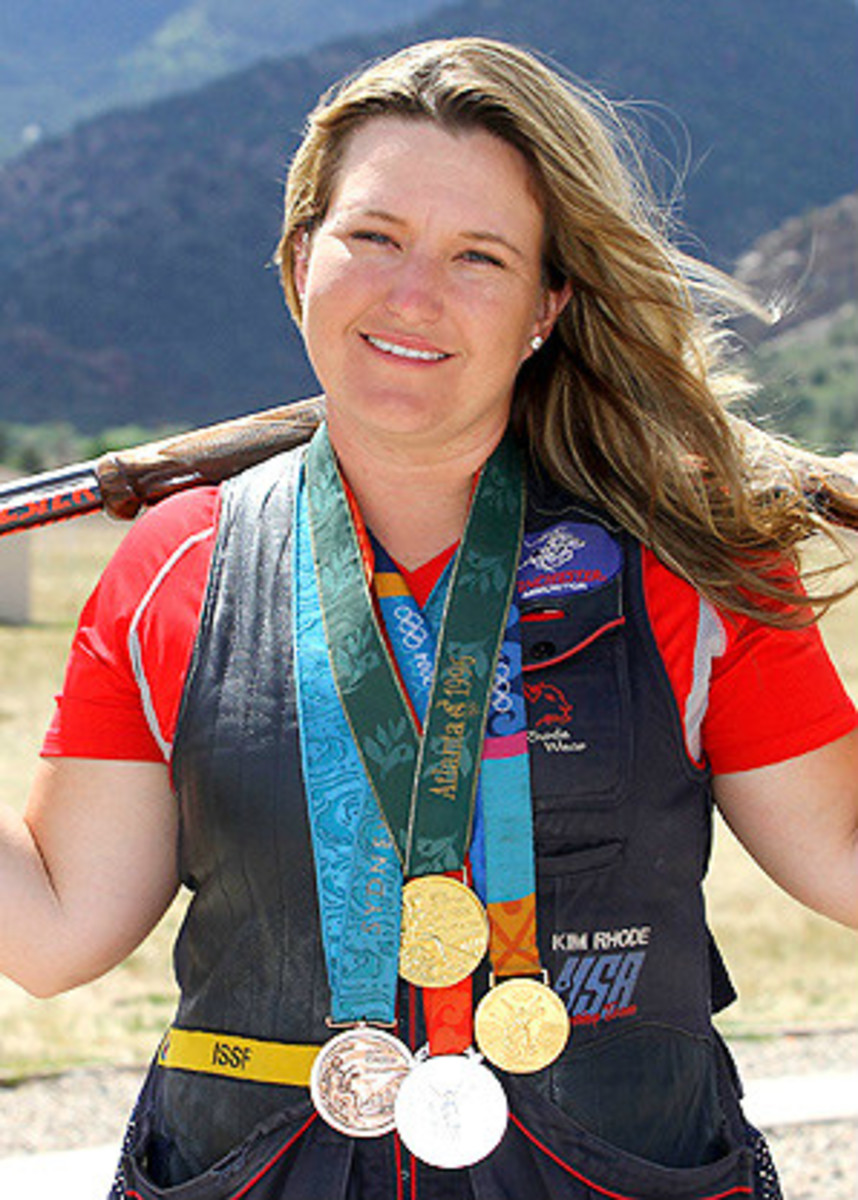Steven Lopez, Kim Rhode anticipate longevity in respective sports
At the Beijing Games, the three Lopezes each won medals -- silver for Mark and bronzes for Steven and Diana. It marked the first time three siblings competed at the same Olympics for the United States since 1904 and the first time three won medals at the same Olympics. The three siblings each won gold medals at the world championships in Madrid in 2005.
Diana defeated Danielle Holmquist, 3-1, in her final match to advance to her second Olympics, despite battling injuries on her road to London.
Having worked his way through the challengers' bracket in Colorado Springs, Mark needed to beat Jennings twice to earn another Olympic berth. He lost in the second match and will instead go back as Steven's training partner.
Now, Steven has reached his own rarefied place in the sport. He won gold medals at the Games in Sydney and Athens and he has five golds at world championships, between 2001 and 2009. "I'm in a constant state of refinement," he says. "You always want the perfect performance. You do get sore and it's hard to give up things in other parts of your life, but it's an opportunity of a lifetime."
Having Mark on the sidelines will be bittersweet for Steven, but the Olympic effort will be a family affair, as always. Oldest brother Jean, also a former world medalist, has coached the younger three throughout their Olympic journey. The bronze in Beijing is still an unpleasant reminder. "After the previous two Olympics and five world championships things have become almost automatic," he says. Almost business as usual where I was going to go out and win the gold medal. It didn't work out that way. I feel I can still improve. In the grand scope of things you don't have that many opportunities to be in the best shape of your life."
But as impressive as Steven Lopez' longevity is, consider the staying power of Kim Rhode, an Olympic shooter who is talking about competing for another four or five Olympics after making her fifth appearance in London. "I don't see stopping anytime soon," She says.
Why should she? At 32, Rhode could become the first U.S. athlete in any sport to win a medal at five Olympics. She won gold medals in the double trap event in 1996 and 2004, a bronze in double trap in 2000 and a silver in 2008 in the skeet event for which she has qualified again. Rhode became the first athlete to qualify for the 2012 Games when she earned the berth last year, and she is ranked no. 1 internationally. "No pressure, right," she said from Arizona, where she is preparing for a World Cup in trap shooting.
Over the years, Rhode has had to change with the sport. The double trap, for instance, was dropped from the Olympic program before the Games in Beijing. "At the first Olympics I was 16, living at home," she says. "Now I'm married, I have to do dishes and clean house, pay the electric bill. [In Atlanta] I had a lot more nerves not knowing what to expect. I thought, wow, this is a lot bigger than what I imagined. I didn't understand it until I got home and had 200 phone calls and a parade. Today, I have that calmness about me, knowing what's coming next ... Now there's more emphasis on building endurance. As you grow older, things with your eyes and your arms change as you become older."
Many shooters utilize specific eye exercises to improve their vision. Some use vision tests with different color lights. Others look at items up close and then farther back to strengthen the eyes by training them to focus. Rhode hasn't bothered with any of that yet. "I can read the bottom of the eye chart anyway," she says.
Instead she uses repetition, pushing herself to repeat the same process that requires steady nerves and micro-precision. "It doesn't matter your size or strength in our sport," she says. "It has more to do with your hand-eye coordination and being able to adjust to the conditions. We have longer careers because we don't have a harshness on our bodies."
There's a reason why the oldest Olympic medalist was a 72-year-old Swedish shooter named Oscar Swahn, who won a silver in 1920. Rhode is shooting for similar longevity. "As long as I possibly can you'll definitely see me out there competing," she says. "I think I have a few more in me."





